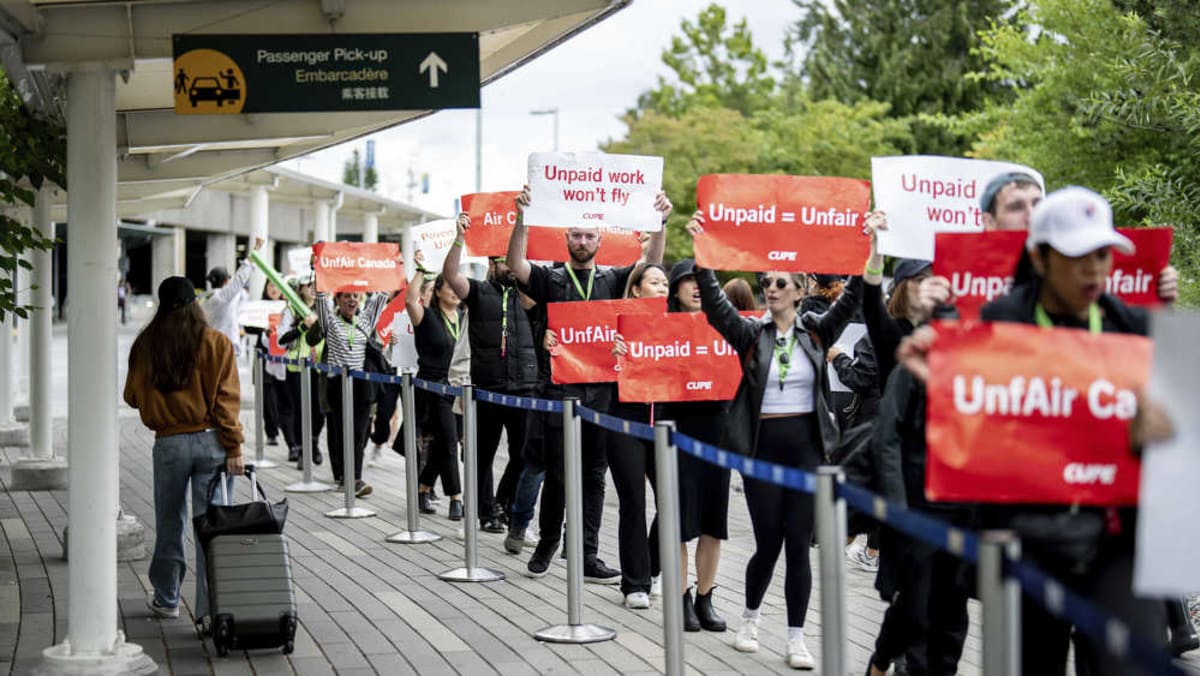“With both parties declaring an impasse in negotiations, with valuable cargo grounded and passengers stranded, the government made the right decision to refer the two sides to binding arbitration,” Matthew Holmes, chief of public policy for the Canadian Chamber of Commerce, said in a statement.
WAGE DISPUTE
While the most contentious topic was compensation for time spent on the ground, there was also disagreement over broader wage issues. The carrier had offered a 38 percent increase in total compensation for flight attendants over four years, with a 25 percent raise in the first year, which CUPE said was insufficient.
The union has said Air Canada offered to compensate flight attendants for some work that is now unpaid at 50 percent of their hourly rate.
A source close to the negotiations told Reuters the union was looking for parity on wages with Canadian leisure carrier Air Transat. Its flight attendants approved a contract last year that provided for total compounded increases of 30 percent over five years, making them the highest paid in the industry in Canada.
Air Canada did not confirm if such a proposal had been put forth by the union.
Wesley Lesosky, president of the Air Canada component of CUPE, said in a press conference in Toronto earlier on Saturday that there were no bargaining sessions scheduled between the two sides, which have held on-and-off negotiations for months.
Earlier in the day outside Toronto Pearson International Airport, the country’s busiest, hundreds of cabin crew waved flags, banners and picket signs. Union officials called on members to assemble outside all of the country’s major airports, including in Toronto, Montreal, Calgary and Vancouver.
